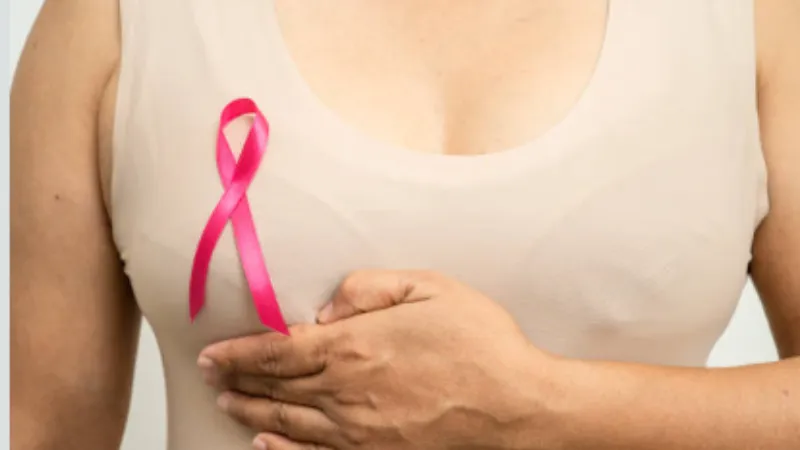
Breast cancer is a complex and common disease that affects millions of people worldwide. Although the exact causes of breast cancer are still unknown, protecting breast health requires recognising risk factors and taking action to reduce or eliminate them.
Read More – 5 Motives For Dancing To Improve Your Health
In general, there are two types of breast cancer risk factors: modifiable and non-modifiable. Non-modifiable risk factors are those that are innate traits that people are unable to change. On the other hand, changes in behaviour and lifestyle can affect modifiable risk variables. It is crucial to remember that the presence of one or more risk factors does not ensure the occurrence of breast cancer. As a matter of fact, many people with breast cancer are not associated with any known risk factors.
Do you have breast cancer? These ten lifestyle changes will help you combat the illness.
Non-Modifiable Risk Factors for Breast Cancer
The following are breast cancer risk factors that cannot be changed:
Age and Gender
The most common risk factor for breast cancer is being a woman. This condition affects women much more often than it does males, and the risk increases with age, particularly after menopause.
Family History and Genetics
An individual’s risk may be increased by a family history of breast cancer, particularly if a close relative (mother, sister, or daughter) had a diagnosis at an early age. Particular genetic abnormalities, including those in BRCA1 and BRCA2, also significantly raise the risk.
Reproductive Elements
Menstruating before the age of twelve and going through menopause after the age of fifty-five can lengthen the time that an individual is exposed to oestrogen, which may increase the risk of breast cancer.
Breast Cancer Risk Factors That Can Be Changed
You should be aware of the following modifiable risk factors for breast cancer:
Hormone Replacement Treatment
The risk of breast cancer can be raised by using birth control pills and hormone replacement therapy with progesterone and oestrogen after menopause.
Drinking Alcohol
It is advised to keep alcohol intake to one drink each day as regular drinking can increase the risk of breast cancer.
Weight and Physical Activity
Particularly after menopause, a sedentary lifestyle and low physical exercise can lead to weight increase and an elevated risk of breast cancer. A increased risk is linked to being overweight or obese, especially after menopause.
Exposure to Radiation
Breast cancer risk may increase if prior radiation therapy to the face or chest was received for other medical reasons.
Benign Breast Conditions
Atypical hyperplasia and lobular carcinoma in situ are two benign breast diseases that may also raise the chance of breast cancer.
Controlling Breast Cancer Through Preventive Measures
Many risk factors for breast cancer are outside of an individual’s control, making prevention difficult. However, a number of methods and lifestyle adjustments can lower the chance of getting breast cancer or assist identify it early on, when it’s more treatable.
Frequent Examination and Prompt Identification
It is imperative to follow prescribed screening protocols, such as self-examinations and clinical breast exams, and to get regular mammograms. Treatment that is more successful can result from early detection.
Continue to Be Physically Active and Maintain a Healthy Weight
Engaging in regular exercise can help lower the risk of breast cancer. Try to get in at least 150 minutes a week of moderate-to-intense activity.
Nutritious Foods and Well-Being Habits
It is recommended to eat a diet high in fruits, vegetables, whole grains, and lean proteins. Restrict your consumption of sugary foods, high-fat dairy items, and processed and red meats.
Reduce Your Alcohol Consumption
It is advised to limit your daily alcohol intake to one drink.
Breastfeeding
There is a correlation between breastfeeding and a lower incidence of breast cancer. Continuing nursing for a longer period of time could offer further protection.
Steer Clear of Hormone Replacement Therapy (HRT)
Examining non-hormonal ways to control menopausal symptoms can assist in avoiding the dangers of hormone replacement therapy.
Reduce Your Exposure to Toxins in the Environment
It can be protective to use BPA-free items and reduce the usage of plastic containers to reduce exposure to hormone-like environmental pollutants like BPA (present in some plastics).
Understand Your Lineage
Providing your family history to your healthcare professional will aid in risk assessment and assist you talk about suitable screening and preventive measures. Consider genetic counselling if you have a family history of breast cancer or if you have particular risk factors.
Give Up Smoking
Giving up smoking can lower your risk of breast cancer and other cancers.
Emotional Health and Rest
For general health, it is crucial to manage stress and get enough sleep in order to maintain emotional well-being.
Read More – Are You Coffee Addicted? These 5 Health Problems Could Affect You
In conclusion, despite the wide range and complexity of breast cancer risk factors, people can reduce their risk by adopting preventive lifestyle choices and getting regular checkups. In the battle against breast cancer, early identification and prevention are essential, and people are urged to speak with medical specialists to develop individualised preventative strategies. By working together, we can enhance overall breast health and lower the chance of breast cancer in the future.
Read More – 5 DIY Body Scrubs This Summer That Your Skin Will Love


